Adgully Exclusive | Context + Content = Potent message: Yahoo's Nitin Mathur
Mathur began by talking about the milestones crossed by Yahoo since he became a part of its brains trust. "When I joined the company in October 2007, we were pretty much around 60-odd percent of market reach," he said. "Today, we are about 73%, so it means a 13% increase in terms of market reach. Market reach in our parlance means the number of internet users who come aboard Yahoo vis-Ã -vis the market. So if 100% is the overall base, we have about 73% of the audiences in the online media space."
As another milestone, Mathur pointed out to a series of new product innovations. "We have been able to reinvigorate our brand and reposition ourselves within the audiences," he said. "In the last one-and-half to two years, we have been fairly aggressive in terms of marketing and going out and telling our story." Mathur said the company had also started paying focused attention to the B2B-marketing side. "That essentially means evangelizing to the current set of users and advertisers, and obviously keeping an eye on future advertisers," he said. "We have launched a series of efforts right from organizing workshops for them, to highlighting advertising success stories, to building case studies, to building momentum on our advertising side by showcasing the right kind of solutions."
As for the B2B campaigns, Mathur said: "When we look at India as a market, it is a fairly strong consumer-growth market for us. Hence, you see a lot of momentum on the consumer-marketing side. So this is clearly one of the priority markets for the company." He said when Yahoo launched its brand campaign, it did so simultaneously in India, the US, and the UK.
Then Mathur turned to the question of the campaign on TV, which seems to have tapered off. "I think it's a process which is slightly long term," he said. "And what we are making sure is that we have the right product in the market place. So there are a lot of product innovations happening and, simultaneously, we are talking of marketing and communication. So from late 2009 till Q1 2010, we had been very active on the consumer side. Now we have started focusing on reinvigorating the B2B- audience side."
Yahoo would get more active on the consumer side towards the end of the year, Mathur said. "I think the focus happens simultaneously, it's not that we press the pedal on one place and release it elsewhere," he said. "Campaigns come and go. In our business, it's very important to recognize that campaigns are not everything. A lot of activities actually happen online when we introduce newer products."
Talking of online offerings, Adgully asked Mathur to assess the evolution of the internet in India. "I would say there are a couple of trends which are very interesting," he said. "We have seen lot of dual usage †on mobile and PC. And over a period of time, we expect a lot of new consumers to start their journeys on mobile as far as internet is concerned." He said the time spent on the internet, which is a true measure of the stickiness of the medium, had gone up. "From the previous year to this year, the time spent online has gone up by 70%," he said. "None of the other media has seen this rise. People are spending more time on the internet and the pie is growing. Advertisers have started looking at it very seriously, some of the most savvy and also called "future focused" advertisers are clearly reading this strength and are getting into the online domain."
He said that not all advertisers knew what to do online, and that is where companies like Yahoo played a role in helping such advertisers build the right solutions.
The discussion turned to Yahoo's association with the Emvies. "As far as the Emvies are concerned, we are sponsoring the category for Digital Media Innovation," Mathur said. "Our association with Ad Club has been a long one. We have been associated with them across various event formats. We have been associated with Effies for more than five years, and we have the Yahoo! Big Idea Chair for them, which is a special award category in the Effies."
Yahoo took a strategic decision to partner with Emvies this year for the digital media innovation award category, Mathur said. "We created awareness about the category and initiated discussions with Ad Club agencies to drive up their creative and media work on their digital side," he said. "So we saw some increase in submissions as well. And as a market leader, we got to play a role in evangelizing about the media. And when people see a brand like Yahoo putting its weight behind something like the digital media category, it makes a difference." He said such an initiative was also, in a way, a recognition of the business that has started coming online. "And it has become far more important in media planning than it was earlier," Mathur said.
Given that the online platform was worth talking about, we asked Mathur about Yahoo's budget for such a proselytizing drive. "Typically, for any CMO, the marketing budgets are spent in several areas," he said. "We do have specific investments focused towards our brand which is really about making sure that our brand is attractive for new users. We want to make sure that our brand is at top of the mind for new users, and that calls for certain marketing investments¦whether it's above the line or whether it's working with cyber cafés, or working with schools, or on-ground programmes." He said another market related to evangelizing about the digital medium and educating advertisers, which is where most of Yahoo's B2B marketing happens. "We spend a lot of time, energy and money on research because as a company we are very intensive in terms of understanding consumer needs," he said.
So has Yahoo planned more activities? "We don't want to lose momentum," Mathur said. "So you will continue to see us aggressively participating in events such as those I mentioned. Our participation is not limited to sponsorship. We have participated with the intention of deeply engraving it. We will continue to use direct advertising on the B2B front as a tool as well."
Mathur then went on to talk about new initiatives. "On the advertising front, we have articulated our value proposition very clearly and we will start talking about it," he said. "Given our current assets, Yahoo is actually the best place to get advertisements on internet, if you consider some of our leading products, for instance the Yahoo homepage which reaches 55% of internet audiences. If you are advertising on our homepage for a month you are reaching about 22 million users in one go. So we want to ensure that people understand the scale which Yahoo has secured on the internet, and also its number one properties like cricket, movies, news, mails etc."
Mathur said Yahoo's approach to consumers was very clear. "We want to be at the centre of people's online lives," he said. "It means that from the new-user perspective, if you think about Yahoo, it's the best place to start. It's a place where consumers get to fulfill all their online needs. Our value proposition to our new users is really about how Yahoo enables you to get more from the internet." He said the products and tools that the users would need to explore the internet would be available at Yahoo. "So it's really about being at the centre of people's online life and staying relevant to them," he said.
Adgully contended that web was not considered for advertising based upon its content, and if Mathur thought Yahoo was changing the perception. He responded: "We have a ton of innovations in the content area and the philosophy is really simple †people do want curated content, they want certain amount of distilled content, not everybody knows where to go and we want to be the quintessential destination where you get best of aggregated content. But at the same time, we want to give the best of original content as well." He said such a philosophy got advertisers interested. "They are very interested in getting integrated with the content and communicate their message while the consumer is actually consuming the content," he said. "Other dimension to this is branded content for advertisers. We will also bring in the right level of content for a particular brand to have that conversation. So once you bring the context and content together, the message is incredibly powerful."
The message association and the awareness of a brand dramatically increase if one gets the context right, Mathur said. "It all happens because we have a deep understanding of what people consume and what they like," he said. "The Yahoo homepage is built on a technology that intuitively understands what you want. So it's a combination of human editors' intelligence built in the system which is making the content far more real. If the content is real and relevant, then advertisers will latch on to you."
Finally, Adgully asked Mathur what drove Yahoo's marketing. "The answer is different in different markets," he said. "In more mature markets, it's about retention, it's about engagement, it's about increasing the time spent. We have these challenges in growing markets as well but in growing markets, the strategy is to acquire consumers †and that is why we invest in the brand." As for the B2B side, Mathur said: "We definitely want to be seen as the place that offers the best combination of science, art and scale on the digital canvas¦in the end, it's about education here."



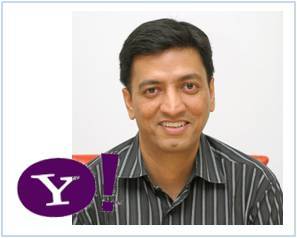
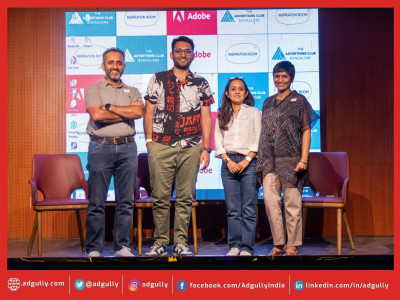

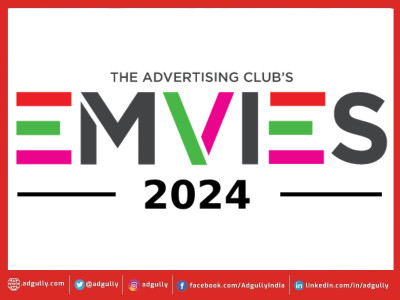

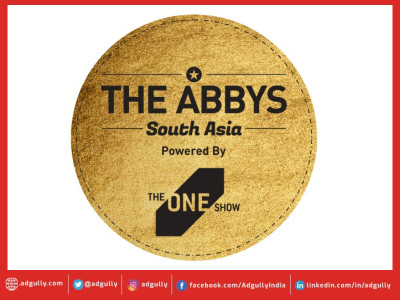





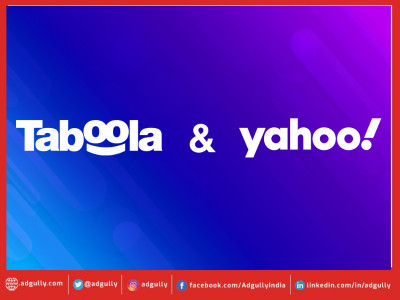


Share
Facebook
YouTube
Tweet
Twitter
LinkedIn